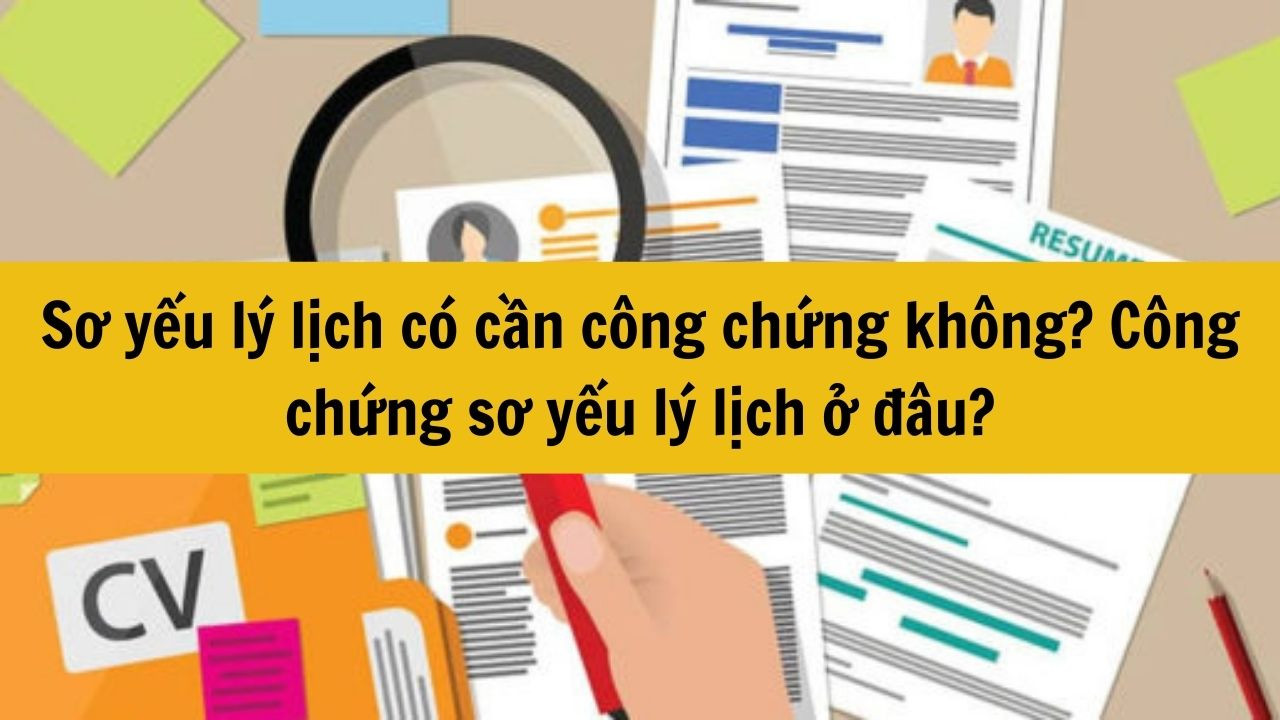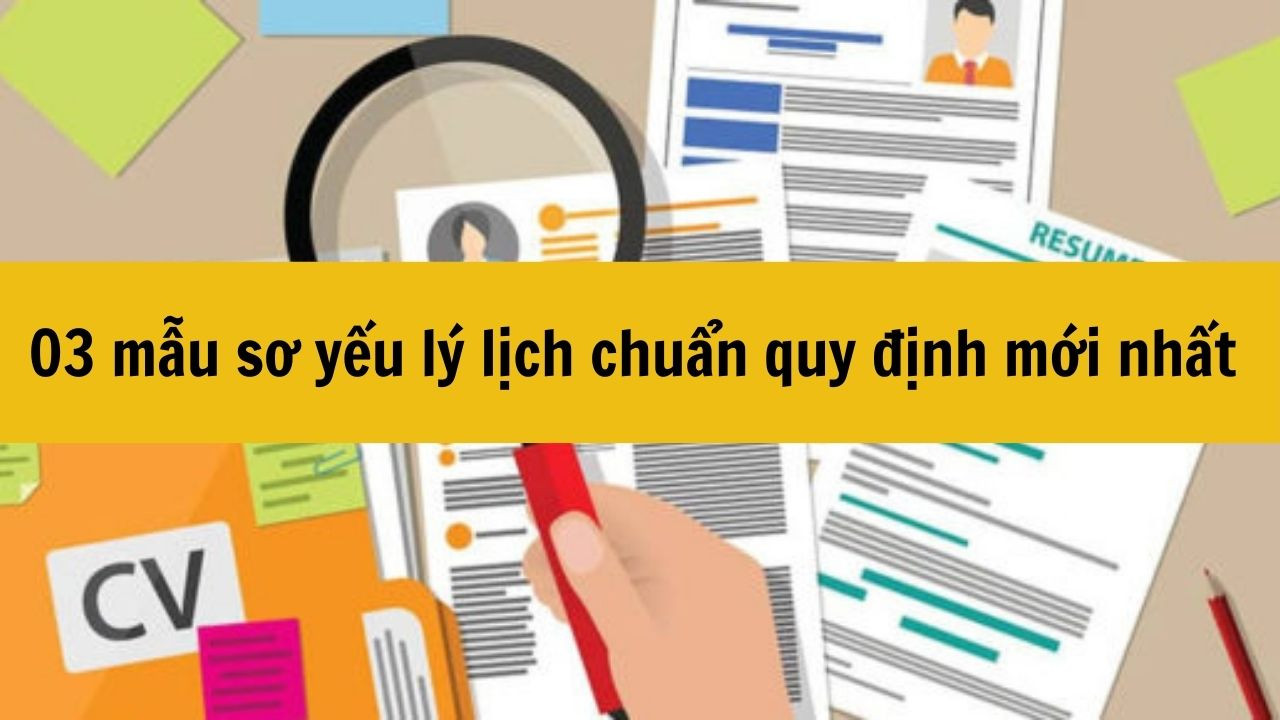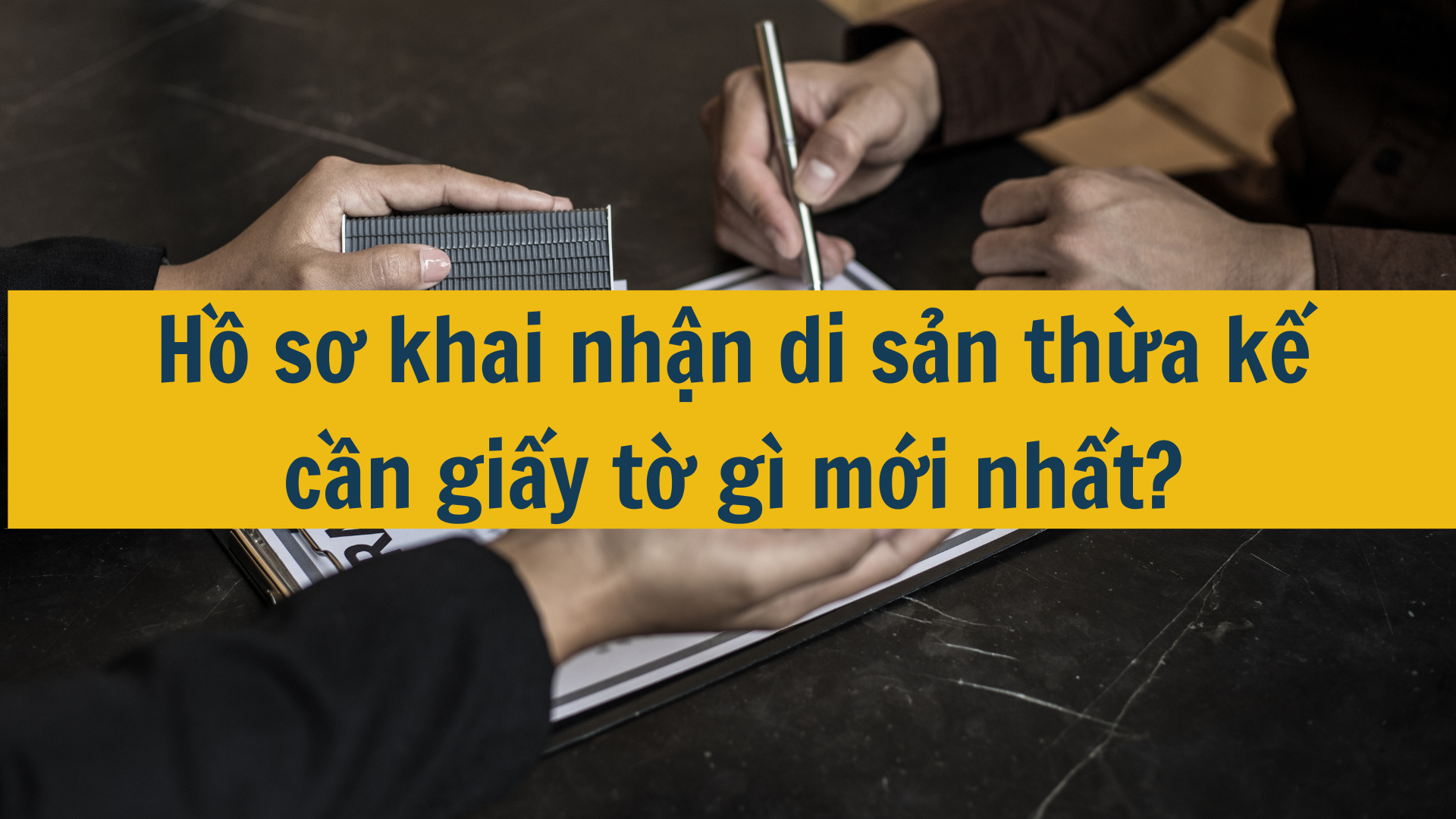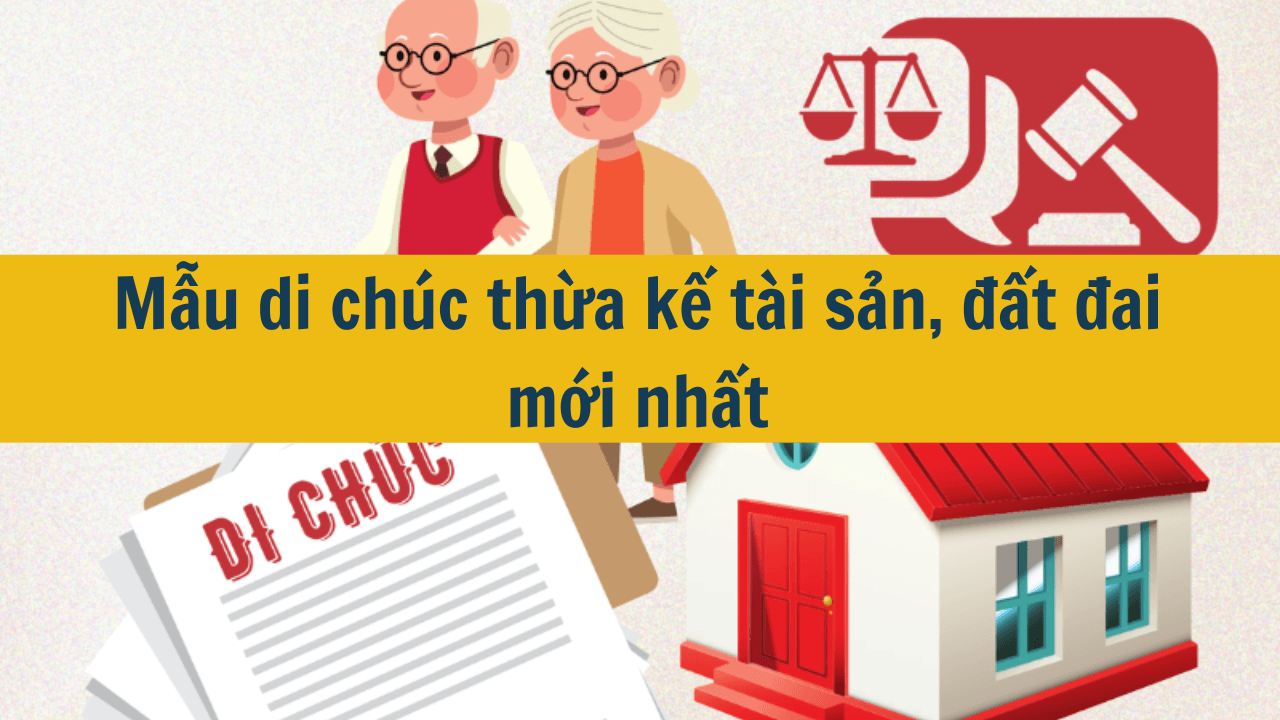 Tìm kiếm
Tìm kiếm
Chương II Luật Công chứng 2014: Công chứng viên
| Số hiệu: | 53/2014/QH13 | Loại văn bản: | Luật |
| Nơi ban hành: | Quốc hội | Người ký: | Nguyễn Sinh Hùng |
| Ngày ban hành: | 20/06/2014 | Ngày hiệu lực: | 01/01/2015 |
| Ngày công báo: | 16/07/2014 | Số công báo: | Từ số 681 đến số 682 |
| Lĩnh vực: | Dịch vụ pháp lý | Tình trạng: | Còn hiệu lực |
TÓM TẮT VĂN BẢN
Điểm mới Luật Công chứng 2014
Ngày 20/06 vừa qua, Luật Công chứng mới số 53/2014/QH13 được Quốc hội thông qua, và có những thay đổi cơ bản sau:
Mở rộng quyền cho công chứng viên, cụ thể:
- Thêm quyền công chứng bản dịch giấy tờ, văn bản từ tiếng Việt sang tiếng nước ngoài và ngược lại;
- Thêm quyền chứng thực bản sao từ bản chính, chứng thực chữ ký trong giấy tờ, văn bản.
Siết chặt đào tạo nghề công chứng:
- Tăng thời gian đào tạo công chứng lên 12 tháng;
- Tăng thời gian hành nghề lên 05 năm đối với thẩm phán, kiểm sát viên, điều tra viên, luật sư đồng thời phải tham gia khóa bồi dưỡng nghề trong 03 tháng mới được miễn đào tạo nghề.
Văn phòng công chứng được phép chuyển nhượng nếu đã hoạt động được 02 năm; công chứng viên chuyển nhượng sẽ không được phép thành lập Văn phòng công chứng mới trong thời hạn 05 năm.
Luật Công chứng 2014 sẽ có hiệu lực thi hành từ 01/01/2015.
Văn bản tiếng việt
Văn bản tiếng anh
Công dân Việt Nam thường trú tại Việt Nam, tuân thủ Hiến pháp và pháp luật, có phẩm chất đạo đức tốt và có đủ các tiêu chuẩn sau đây thì được xem xét, bổ nhiệm công chứng viên:
1. Có bằng cử nhân luật;
2. Có thời gian công tác pháp luật từ 05 năm trở lên tại các cơ quan, tổ chức sau khi đã có bằng cử nhân luật;
3. Tốt nghiệp khóa đào tạo nghề công chứng quy định tại Điều 9 của Luật này hoặc hoàn thành khóa bồi dưỡng nghề công chứng quy định tại khoản 2 Điều 10 của Luật này;
4. Đạt yêu cầu kiểm tra kết quả tập sự hành nghề công chứng;
5. Bảo đảm sức khỏe để hành nghề công chứng.
1. Người có bằng cử nhân luật được tham dự khóa đào tạo nghề công chứng tại cơ sở đào tạo nghề công chứng.
2. Thời gian đào tạo nghề công chứng là 12 tháng.
Người hoàn thành chương trình đào tạo nghề công chứng được cơ sở đào tạo nghề công chứng cấp giấy chứng nhận tốt nghiệp khóa đào tạo nghề công chứng.
3. Bộ trưởng Bộ Tư pháp quy định chi tiết về cơ sở đào tạo nghề công chứng, chương trình khung đào tạo nghề công chứng và việc công nhận tương đương đối với những người được đào tạo nghề công chứng ở nước ngoài.
1. Những người sau đây được miễn đào tạo nghề công chứng:
a) Người đã có thời gian làm thẩm phán, kiểm sát viên, điều tra viên từ 05 năm trở lên;
b) Luật sư đã hành nghề từ 05 năm trở lên;
c) Giáo sư, phó giáo sư chuyên ngành luật, tiến sĩ luật;
d) Người đã là thẩm tra viên cao cấp ngành tòa án, kiểm tra viên cao cấp ngành kiểm sát; chuyên viên cao cấp, nghiên cứu viên cao cấp, giảng viên cao cấp trong lĩnh vực pháp luật.
2. Người được miễn đào tạo nghề công chứng quy định tại khoản 1 Điều này phải tham gia khóa bồi dưỡng kỹ năng hành nghề công chứng và quy tắc đạo đức hành nghề công chứng tại cơ sở đào tạo nghề công chứng trước khi đề nghị bổ nhiệm công chứng viên. Thời gian bồi dưỡng nghề công chứng là 03 tháng.
Người hoàn thành khóa bồi dưỡng được cấp giấy chứng nhận hoàn thành khóa bồi dưỡng nghề công chứng.
3. Bộ trưởng Bộ Tư pháp quy định chi tiết về khóa bồi dưỡng nghề công chứng quy định tại khoản 2 Điều này.
1. Người có giấy chứng nhận tốt nghiệp khóa đào tạo nghề công chứng hoặc giấy chứng nhận bồi dưỡng nghề công chứng phải tập sự hành nghề tại một tổ chức hành nghề công chứng. Người tập sự có thể tự liên hệ với một tổ chức hành nghề công chứng đủ điều kiện nhận tập sự về việc tập sự tại tổ chức đó; trường hợp không tự liên hệ được thì đề nghị Sở Tư pháp ở địa phương nơi người đó muốn tập sự bố trí tập sự tại một tổ chức hành nghề công chứng đủ điều kiện nhận tập sự.
Người tập sự phải đăng ký tập sự tại Sở Tư pháp ở địa phương nơi có tổ chức hành nghề công chứng nhận tập sự.
Thời gian tập sự hành nghề công chứng là 12 tháng đối với người có giấy chứng nhận tốt nghiệp khóa đào tạo nghề công chứng và 06 tháng đối với người có giấy chứng nhận bồi dưỡng nghề công chứng. Thời gian tập sự hành nghề công chứng được tính từ ngày đăng ký tập sự.
2. Tổ chức hành nghề công chứng nhận tập sự phải có công chứng viên đáp ứng điều kiện hướng dẫn tập sự theo quy định tại khoản 3 Điều này và có cơ sở vật chất bảo đảm cho việc tập sự.
3. Tổ chức hành nghề công chứng phân công công chứng viên hướng dẫn người tập sự.
Công chứng viên hướng dẫn tập sự phải có ít nhất 02 năm kinh nghiệm hành nghề công chứng. Công chứng viên bị xử lý kỷ luật, xử phạt vi phạm hành chính trong hoạt động hành nghề công chứng thì sau 12 tháng kể từ ngày chấp hành xong quyết định kỷ luật, quyết định xử phạt vi phạm hành chính mới được hướng dẫn tập sự hành nghề công chứng. Tại cùng một thời điểm, một công chứng viên không được hướng dẫn nhiều hơn hai người tập sự.
Công chứng viên hướng dẫn tập sự phải hướng dẫn và chịu trách nhiệm về các công việc do người tập sự thực hiện quy định tại khoản 4 Điều này.
4. Người tập sự hành nghề công chứng được hướng dẫn các kỹ năng hành nghề và thực hiện các công việc liên quan đến công chứng do công chứng viên hướng dẫn phân công và chịu trách nhiệm trước công chứng viên hướng dẫn về những công việc đó. Người tập sự không được ký văn bản công chứng.
5. Khi hết thời gian tập sự, người tập sự hành nghề công chứng phải có báo cáo bằng văn bản về kết quả tập sự có nhận xét của công chứng viên hướng dẫn và xác nhận của tổ chức hành nghề công chứng nhận tập sự gửi đến Sở Tư pháp nơi mình đã đăng ký tập sự; được đăng ký tham dự kiểm tra kết quả tập sự hành nghề công chứng. Người đạt yêu cầu kiểm tra kết quả tập sự hành nghề công chứng được cấp giấy chứng nhận kết quả kiểm tra tập sự hành nghề công chứng.
6. Bộ trưởng Bộ Tư pháp quy định chi tiết việc tập sự và kiểm tra kết quả tập sự hành nghề công chứng.
1. Người đáp ứng đủ tiêu chuẩn quy định tại Điều 8 của Luật này có quyền đề nghị Bộ trưởng Bộ Tư pháp bổ nhiệm công chứng viên. Hồ sơ đề nghị bổ nhiệm công chứng viên được gửi đến Sở Tư pháp nơi người đề nghị bổ nhiệm công chứng viên đã đăng ký tập sự hành nghề công chứng.
2. Hồ sơ đề nghị bổ nhiệm công chứng viên gồm:
a) Đơn đề nghị bổ nhiệm công chứng viên theo mẫu do Bộ trưởng Bộ Tư pháp quy định;
b) Phiếu lý lịch tư pháp;
c) Bản sao bằng cử nhân luật hoặc thạc sĩ, tiến sĩ luật;
d) Giấy tờ chứng minh về thời gian công tác pháp luật;
đ) Bản sao giấy chứng nhận tốt nghiệp khóa đào tạo nghề công chứng. Đối với người được miễn đào tạo nghề công chứng thì phải có bản sao giấy chứng nhận hoàn thành khóa bồi dưỡng nghề công chứng và giấy tờ chứng minh là người được miễn đào tạo nghề công chứng quy định tại khoản 1 Điều 10 của Luật này;
e) Bản sao giấy chứng nhận kết quả kiểm tra tập sự hành nghề công chứng;
g) Giấy chứng nhận sức khỏe do cơ quan y tế có thẩm quyền cấp.
3. Trong thời hạn 10 ngày làm việc kể từ ngày nhận đủ hồ sơ đề nghị bổ nhiệm công chứng viên quy định tại khoản 2 Điều này, Sở Tư pháp có văn bản đề nghị Bộ trưởng Bộ Tư pháp bổ nhiệm công chứng viên kèm theo hồ sơ đề nghị bổ nhiệm; trường hợp từ chối đề nghị thì phải thông báo bằng văn bản, trong đó nêu rõ lý do cho người nộp hồ sơ.
4. Trong thời hạn 30 ngày kể từ ngày nhận được văn bản và hồ sơ đề nghị bổ nhiệm công chứng viên của Sở Tư pháp, Bộ trưởng Bộ Tư pháp xem xét, quyết định bổ nhiệm công chứng viên; trường hợp từ chối bổ nhiệm phải thông báo bằng văn bản, trong đó nêu rõ lý do, gửi cho Sở Tư pháp và người đề nghị bổ nhiệm.
1. Người đang bị truy cứu trách nhiệm hình sự, đã bị kết tội bằng bản án đã có hiệu lực pháp luật của Tòa án về tội phạm do vô ý mà chưa được xóa án tích hoặc về tội phạm do cố ý.
2. Người đang bị áp dụng biện pháp xử lý hành chính theo quy định của pháp luật về xử lý vi phạm hành chính.
3. Người bị mất hoặc bị hạn chế năng lực hành vi dân sự.
4. Cán bộ bị kỷ luật bằng hình thức bãi nhiệm, công chức, viên chức bị kỷ luật bằng hình thức buộc thôi việc hoặc sỹ quan, quân nhân chuyên nghiệp, công nhân, viên chức trong cơ quan, đơn vị thuộc Quân đội nhân dân, sỹ quan, hạ sỹ quan, công nhân, viên chức trong đơn vị thuộc Công an nhân dân bị kỷ luật bằng hình thức tước danh hiệu quân nhân, danh hiệu Công an nhân dân hoặc đưa ra khỏi ngành.
5. Người bị thu hồi chứng chỉ hành nghề luật sư do bị xử lý kỷ luật bằng hình thức xóa tên khỏi danh sách của Đoàn luật sư, người bị tước quyền sử dụng chứng chỉ hành nghề luật sư mà chưa hết thời hạn 03 năm kể từ ngày quyết định thu hồi chứng chỉ hành nghề luật sư có hiệu lực hoặc kể từ ngày chấp hành xong quyết định tước quyền sử dụng chứng chỉ hành nghề luật sư.
1. Sở Tư pháp nơi công chứng viên đăng ký hành nghề quyết định tạm đình chỉ hành nghề của công chứng viên trong các trường hợp sau đây:
a) Công chứng viên đang bị truy cứu trách nhiệm hình sự;
b) Công chứng viên đang bị áp dụng biện pháp xử lý hành chính.
2. Thời gian tạm đình chỉ hành nghề công chứng tối đa là 12 tháng.
3. Sở Tư pháp quyết định hủy bỏ quyết định tạm đình chỉ hành nghề công chứng trước thời hạn đối với công chứng viên trong các trường hợp sau đây:
a) Có quyết định đình chỉ điều tra, đình chỉ vụ án hoặc bản án đã có hiệu lực của Tòa án tuyên không có tội;
b) Không còn bị áp dụng biện pháp xử lý hành chính theo quy định của pháp luật về xử lý vi phạm hành chính.
4. Quyết định tạm đình chỉ và quyết định hủy bỏ quyết định tạm đình chỉ hành nghề công chứng phải được gửi cho công chứng viên, tổ chức hành nghề công chứng nơi công chứng viên làm việc, Ủy ban nhân dân tỉnh, thành phố trực thuộc trung ương (sau đây gọi là Ủy ban nhân dân cấp tỉnh) và Bộ Tư pháp.
1. Công chứng viên được miễn nhiệm theo nguyện vọng của cá nhân hoặc chuyển làm công việc khác.
Công chứng viên nộp đơn đề nghị miễn nhiệm tại Sở Tư pháp ở nơi mình đăng ký hành nghề. Trong thời hạn 15 ngày kể từ ngày nhận được đơn đề nghị miễn nhiệm của công chứng viên, Sở Tư pháp có văn bản đề nghị kèm theo đơn đề nghị miễn nhiệm của công chứng viên gửi Bộ trưởng Bộ Tư pháp.
2. Công chứng viên bị miễn nhiệm trong các trường hợp sau đây:
a) Không còn đủ tiêu chuẩn công chứng viên theo quy định tại Điều 8 của Luật này;
b) Bị mất hoặc bị hạn chế năng lực hành vi dân sự;
c) Kiêm nhiệm công việc thường xuyên khác;
d) Không hành nghề công chứng trong thời hạn 02 năm kể từ ngày được bổ nhiệm công chứng viên hoặc không hành nghề công chứng liên tục từ 12 tháng trở lên;
đ) Hết thời hạn tạm đình chỉ hành nghề công chứng quy định tại khoản 2 Điều 14 của Luật này mà lý do tạm đình chỉ hành nghề công chứng vẫn còn;
e) Đã bị xử phạt vi phạm hành chính đến lần thứ hai trong hoạt động hành nghề công chứng mà còn tiếp tục vi phạm; bị xử lý kỷ luật bằng hình thức từ cảnh cáo trở lên đến lần thứ hai mà còn tiếp tục vi phạm hoặc bị kỷ luật buộc thôi việc;
g) Bị kết tội bằng bản án đã có hiệu lực pháp luật của Tòa án;
h) Thuộc các trường hợp không được bổ nhiệm công chứng viên quy định tại Điều 13 của Luật này tại thời điểm được bổ nhiệm.
3. Sở Tư pháp có trách nhiệm rà soát, kiểm tra việc bảo đảm tiêu chuẩn hành nghề của công chứng viên tại địa phương mình.
Khi có căn cứ cho rằng công chứng viên thuộc trường hợp bị miễn nhiệm quy định tại khoản 2 Điều này, Sở Tư pháp có văn bản đề nghị miễn nhiệm công chứng viên kèm theo các tài liệu liên quan làm căn cứ cho việc đề nghị miễn nhiệm gửi Bộ trưởng Bộ Tư pháp.
4. Trong thời hạn 15 ngày kể từ ngày nhận được hồ sơ đề nghị miễn nhiệm công chứng viên, Bộ trưởng Bộ Tư pháp xem xét, quyết định việc miễn nhiệm công chứng viên.
1. Người được miễn nhiệm công chứng viên theo quy định tại khoản 1 Điều 15 của Luật này được xem xét bổ nhiệm lại công chứng viên khi có đề nghị bổ nhiệm lại.
2. Người bị miễn nhiệm công chứng viên theo quy định tại khoản 2 Điều 15 của Luật này được xem xét bổ nhiệm lại công chứng viên khi đáp ứng đủ tiêu chuẩn công chứng viên quy định tại Điều 8 của Luật này và lý do miễn nhiệm không còn, trừ trường hợp quy định tại khoản 3 Điều này.
3. Người bị miễn nhiệm công chứng viên do bị kết tội bằng bản án đã có hiệu lực pháp luật của Tòa án về tội phạm do cố ý, bị xử phạt vi phạm hành chính đến lần thứ hai trong hoạt động hành nghề công chứng mà còn tiếp tục vi phạm, bị xử lý kỷ luật bằng hình thức từ cảnh cáo trở lên đến lần thứ hai mà còn tiếp tục vi phạm hoặc bị kỷ luật buộc thôi việc thì không được bổ nhiệm lại công chứng viên.
4. Thủ tục bổ nhiệm lại công chứng viên được thực hiện theo quy định tại Điều 12 của Luật này. Hồ sơ đề nghị bổ nhiệm lại công chứng viên gồm:
a) Đơn đề nghị bổ nhiệm lại công chứng viên theo mẫu do Bộ trưởng Bộ Tư pháp quy định;
b) Phiếu lý lịch tư pháp;
c) Giấy chứng nhận sức khỏe do cơ quan y tế có thẩm quyền cấp;
d) Bản sao quyết định miễn nhiệm công chứng viên;
đ) Bản sao các giấy tờ chứng minh lý do miễn nhiệm không còn, trừ trường hợp quy định tại khoản 1 Điều này.
1. Công chứng viên có các quyền sau đây:
a) Được pháp luật bảo đảm quyền hành nghề công chứng;
b) Tham gia thành lập Văn phòng công chứng hoặc làm việc theo chế độ hợp đồng cho tổ chức hành nghề công chứng;
c) Được công chứng hợp đồng, giao dịch, bản dịch theo quy định của Luật này;
d) Đề nghị cá nhân, cơ quan, tổ chức có liên quan cung cấp thông tin, tài liệu để thực hiện việc công chứng;
đ) Được từ chối công chứng hợp đồng, giao dịch, bản dịch vi phạm pháp luật, trái đạo đức xã hội;
e) Các quyền khác theo quy định của Luật này và các văn bản quy phạm pháp luật khác có liên quan.
2. Công chứng viên có các nghĩa vụ sau đây:
a) Tuân thủ các nguyên tắc hành nghề công chứng;
b) Hành nghề tại một tổ chức hành nghề công chứng;
c) Tôn trọng và bảo vệ quyền, lợi ích hợp pháp của người yêu cầu công chứng;
d) Giải thích cho người yêu cầu công chứng hiểu rõ quyền, nghĩa vụ và lợi ích hợp pháp của họ, ý nghĩa và hậu quả pháp lý của việc công chứng; trường hợp từ chối yêu cầu công chứng thì phải giải thích rõ lý do cho người yêu cầu công chứng;
đ) Giữ bí mật về nội dung công chứng, trừ trường hợp được người yêu cầu công chứng đồng ý bằng văn bản hoặc pháp luật có quy định khác;
e) Tham gia bồi dưỡng nghiệp vụ công chứng hàng năm;
g) Chịu trách nhiệm trước pháp luật và trước người yêu cầu công chứng về văn bản công chứng của mình; chịu trách nhiệm trước pháp luật về hoạt động của Văn phòng công chứng mà mình là công chứng viên hợp danh;
h) Tham gia tổ chức xã hội - nghề nghiệp của công chứng viên;
i) Chịu sự quản lý của cơ quan nhà nước có thẩm quyền, của tổ chức hành nghề công chứng mà mình làm công chứng viên và tổ chức xã hội - nghề nghiệp của công chứng viên mà mình là thành viên;
k) Các nghĩa vụ khác theo quy định của Luật này và các văn bản quy phạm pháp luật khác có liên quan.
NOTARIES
Article 8. Criteria for notaries
A Vietnamese citizen who permanently resides in Vietnam, observes the Constitution and law, has good ethical qualities, and fully satisfies the following criteria shall be considered for appointment as a notary:
1. Having a bachelor of law degree.
2. Having performed legal work at agencies or organizations for at least 5 years after obtaining the bachelor of law degree.
3. Having graduated from a notary training course as prescribed in Article 9 of this Law or completed a notary re-training course as prescribed in Clause 2, Article 10 of this Law.
4. Meeting requirements on notarial practice probation results.
5. Being physically fit for notarial practice.
1. Those who possess a bachelor of law degree may attend notary training courses at notary training institutions.
2. A notary training course must last for 12 months.
Those who have completed a notary training course shall be granted certificates of graduation from the notary training course by the notary training institution.
3. The Minister of Justice shall stipulate in detail notary training institutions, the framework program for notary training and equivalence recognition for those who have been trained in notary abroad.
Article 10. Exemption from notary training
1. Notary training shall be exempted for the following persons:
a/ Those who have worked as judges, prosecutors or investigators for at least 5 years;
b/ Lawyers who have been engaged in legal practice for at least 5 years;
c/ Law professors and associate professors; doctors of law;
d/ Senior verifiers of courts, senior examiners of procuracies; senior experts, senior researchers and senior lecturers in the legal sector.
2. Persons exempted from notary training under Clause 1 of this Article shall attend a re-training course on notarial practice skills and rules on notary practice ethics at a notary training institution before they are proposed for appointment as notaries. A notary re-training course must last for 3 months.
Those who have completed a notary re-training course shall be granted certificates of completion of the notary re-training course.
3. The Minister of Justice shall stipulate in detail notary re-training courses prescribed in Clause 2 of this Article.
Article 11. Notarial practice probation
1. Those who have been granted certificates of graduation from notary training courses or certificates of completion of notary re-training courses shall undergo a probationary period at a notarial practice organization. A probationer may directly contact a notarial practice organization qualified to admit probationers so as to join such organization on probation; if he/she cannot directly contact any notarial practice organization, he/she may request the provincial-level Justice Department of the locality where he/she wishes to undergo a probationary period to arrange his/her probation at a notarial practice organization qualified to admit probationers.
Probationers shall register their probation at the provincial-level Justice Departments of the localities where the notarial practice organizations which they join on probation are located.
The period of notarial practice probation is 12 months for persons possessing a certificate of graduation from a notary training course or 6 months for persons possessing a certificate of completion of a notary re-training course. The period of notarial practice probation shall be counted from the date of probation registration.
2. Notarial practice organizations admitting probationers must have notaries satisfying the conditions on probationer tutoring prescribed in Clause 3 of this Article and have physical foundations to ensure the probation.
3. Notarial practice organizations admitting probationers shall assign notaries to tutor probationers.
Notaries acting as tutors must have at least two years’ experience in notarial practice. A notary who is disciplined or administratively sanctioned for violations in notarial practice may not act as a tutor within 12 months after the date of completing the serving of the disciplining decision or administrative sanctioning decision. A notary may not concurrently tutor more than 2 probationers.
Notaries acting as tutors shall guide and take responsibility for jobs performed by probationers under Clause 4 of this Article.
4. Notarial practice probationers shall be guided in professional practice skills, perform notarization-related jobs assigned by their tutors and take responsibility before their tutors for such jobs. Probationers may not sign notarized documents.
5. Upon expiration of the probationary period, a notarial practice probationer shall submit to the provincial-level Justice Department with which he/she has registered the probation a written probation result report containing comments of the notary acting as his/her tutor and certification of the notarial practice organization; may register for examination of notarial practice probation results. If meeting requirements on notarial practice probation results, the probationer shall be granted a certificate of notarial practice probation results.
6. The Minister of Justice shall stipulate in detail notarial practice probation and examination of national practice probation results.
Article 12. Appointment of notaries
1. Those who fully satisfy the criteria prescribed in Article 8 of this Law may request the Minister of Justice to appoint them as notaries. Dossiers of request for appointment as notaries shall be sent to the provincial-level Justice Departments of the localities where the requesters have registered for notarial practice probation.
2. A dossier of request for appointment as a notary must comprise:
a/ A written request for appointment as a notary, made according to a form set by the Minister of Justice;
b/ The requester’s judicial record;
c/ A copy of the bachelor of law, master of law or doctor of law degree;
d/ Papers proving the working seniority in the legal sector;
dd/ A copy of the certificate of graduation from a notary training course. For those exempted from notary training, a copy of the certificate of completion of a notary re-training course and papers proving the eligibility for exemption from notary training as prescribed in Clause 1, Article 10 of this Law;
e/ A copy of the certificate of notarial practice probation results;
g/ A health certificate granted by a competent health agency.
3. Within 10 working days after receiving a complete dossier of request for appointment as a notary prescribed in Clause 2 of this Article, the provincial-level Justice Department shall make a written proposal enclosed with the dossier to the Minister of Justice to appoint the requester as a notary. In case of refusal, it shall reply in writing clearly stating the reason to the requester.
4. Within 30 days after receiving the written proposal and dossier from the provincial-level Justice Department, the Minister of Justice shall consider and decide to appoint the requester as a notary; in case of refusal, he/she shall issue a written reply clearly stating the reason to the provincial-level Justice Department and the requester.
Article 13. Persons ineligible for appointment as notaries
1. Those who are being examined for penal liability or have been convicted under a court’s legally effective sentence of an unintentional crime but have not yet had their criminal records written off, or of an intentional crime.
2. Those who are being subjected to administrative handling measures in accordance with the law on handling of administrative violations.
3. Those who have their civil act capacity lost or restricted.
4. Cadres who have been disciplined in the form of removal from office; civil servants or public employees who have been disciplined in the form of dismissal; officers, professional army men, workers and public employees of agencies and units under the People’s Army, and officers, non-commissioned officers, workers and employees of units under the People’s Public Security Force who have been disciplined in the form of deprival of the title of army man or people’s policeman or have been expelled from the service.
5. Those who have their legal practice certificates revoked after they are disciplined in the form of disbarment; those who have been deprived of the right to use their legal practice certificates and the 3-year period, counting from the effective date of the decision on revocation of legal practice certificates or the date of completing the serving of the decision on deprival of the right to use legal practice certificates, has not yet expired.
Article 14. Suspension from notarial practice
1. The provincial-level Justice Department with which a notary has registered his/her professional practice shall decide to suspend the notary from professional practice in the following cases:
a/ The notary is being examined for penal liability;
b/ The notary is being subjected to an administrative handling measure.
2. The maximum duration of suspension from notarial practice is 12 months.
3. The provincial-level Justice Department shall decide to cancel the decision on suspension from notarial practice ahead of time in the following cases:
a/ A decision on termination of investigation or the case is issued, or a legally effective verdict of not guilty is issued by a court;
b/ The notary is no longer subjected to the administrative handling measure in accordance with the law on handling of administrative violations.
4. The decision on suspension from notarial practice and decision on cancellation of the decision on suspension from notarial practice shall be sent to the notary, the notarial practice organization where the notary works, the People’s Committee of the province or centrally run city (below referred to as provincial-level People’s Committee) and the Ministry of Justice.
Article 15. Relief from duty of notaries
1. A notary may be relieved from duty at his/her own will or transferred to another job.
The notary shall submit a written request for relief from duty to the provincial-level Justice Department with which he/she has registered his/her professional practice. Within 15 days after receiving the written request, the provincial-level Justice Department shall send a written proposal enclosed with the notary’s written request to the Minister of Justice.
2. A notary shall be relieved from duty in the following cases:
a/ He/she no longer satisfies the criteria for notaries prescribed in Article 8 of this Law;
b/ He/she has his/her civil act capacity lost or restricted;
c/ He/she concurrently performs another regular job;
d/ He/she fails to conduct notarial practice within 2 years after being appointed as a notary or fails to conduct notarial practice for 12 consecutive months or more;
dd/ The duration of suspension from notarial practice prescribed in Clause 2, Article 14 of this Law has expired but the reason for the suspension still exists;
e/ He/she has been sanctioned twice for administrative violations in notarial practice but still continue committing violations; he/she has been disciplined in the form of reprimand or in a heavier form twice but still continue committing violations, or has been disciplined in the form of dismissal;
g/ He/she is convicted under a court’s legally effective sentence;
h/ He/she is ineligible for appointment as a notary in the cases prescribed in Article 13 of this Law at the time of being appointed.
3. Provincial-level Justice Departments shall scrutinize and examine the satisfaction of professional practice criteria by notaries in their localities.
When having grounds to believe that a notary falls into a case subject to relief from duty prescribed in Clause 2 of this Article, the provincial-level Justice Department shall send a written proposal for relief from duty of the notary, enclosed with relevant supporting documents, to the Minister of Justice.
4. Within 15 days after receiving a dossier of proposal for relief from duty of a notary, the Minister of Justice shall consider and decide to relieve the notary from duty.
Article 16. Re-appointment as notaries
1. Notaries who have been relieved from duty under Clause 1, Article 15 of this Law may be considered for re-appointment as notaries when they make requests for re-appointment.
2. Except the case prescribed in Clause 3 of this Article, notaries who have been relieved from duty under Clause 2, Article 15 of this Law may be considered for re-appointment as notaries when fully meeting the criteria for notaries prescribed in Article 8 of this Law and the reasons for their relief from duty no longer exist.
3. Notaries who have been relieved from duty because as they are convicted under court’s legally effective sentences of intentional crimes, have been twice sanctioned for administrative violations in notarial practice but continue committing violations; have been disciplined in the form of reprimand or in a heavier form twice but still continue committing violations or in the form of dismissal shall not be re-appointed as notaries.
4. Procedures for re-appointment as notaries must comply with Article 12 of this Law. A dossier of request for re-appointment as a notary must comprise:
a/ A written request for re-appointment as a notary, made according to a form set by the Minister of Justice;
b/ The judicial record;
c/ The health certificate granted by a competent health agency;
d/ A copy of the decision on relief from duty of the notary;
dd/ Copies of papers proving that the reason for relief from duty no longer exists, except the case prescribed in Clause 1 of this Article.
Article 17. Rights and obligations of notaries
1. Notaries have the following rights:
a/ To have their right to notarial practice protected by law;
b/ To participate in the establishment of notary offices or work under contracts for notarial practice organizations;
c/ To notarize contracts, transactions and translations in accordance with this Law;
d/ To request related individuals, agencies and organizations to provide information and documents serving the notarization;
dd/ To refuse to notarize contracts, transactions and translations which violate law or are contrary to social ethics;
e/ To have other rights as prescribed in this Law and other relevant laws.
2. Notaries have the following obligations:
a/ To abide by the principles of notarial practice;
b/ To practice at a notarial practice organization;
c/ To respect and protect lawful rights and interests of notarization requesters;
d/ To explain to notarization requesters their lawful rights, obligations and interests, and legal significance and consequences of notarization; if refusing notarization requests, to clearly state the reasons to notarization requesters;
dd/ To keep secret contents of notarized documents, unless otherwise agreed in writing by notarization requesters or provided by law;
e/ To attend notary re-training courses every year;
g/ To take responsibility before law and notarization requesters for documents they have notarized; to take responsibility before law for operations of notary offices of which they are partners;
h/ To join socio-professional organizations of notaries;
i/ To be managed by competent state agencies, notarial practice organizations where they work and the notaries’ socio-professional organization of which they are members;
k/ To have other obligations as prescribed by this Law and other relevant legal documents.
Văn bản liên quan
Cập nhật
Điều 18. Nguyên tắc thành lập tổ chức hành nghề công chứng
Điều 21. Chuyển đổi, giải thể Phòng công chứng
Điều 28. Hợp nhất, sáp nhập Văn phòng công chứng
Điều 29. Chuyển nhượng Văn phòng công chứng
Điều 37. Bảo hiểm trách nhiệm nghề nghiệp của công chứng viên
Điều 39. Tổ chức xã hội - nghề nghiệp của công chứng viên
Điều 9. Đào tạo nghề công chứng
Điều 10. Miễn đào tạo nghề công chứng
Điều 12. Bổ nhiệm công chứng viên
Điều 17. Quyền và nghĩa vụ của công chứng viên
Điều 24. Thay đổi nội dung đăng ký hoạt động của Văn phòng công chứng
Điều 27. Thay đổi thành viên hợp danh của Văn phòng công chứng
Điều 31. Chấm dứt hoạt động Văn phòng công chứng
Điều 33. Nghĩa vụ của tổ chức hành nghề công chứng
Điều 46. Lời chứng của công chứng viên
Điều 62. Cơ sở dữ liệu công chứng
Bài viết liên quan
Sơ yếu lý lịch có được đánh máy không? Mẫu sơ yếu lý lịch đánh máy chuẩn mới nhất

Sơ yếu lý lịch có được đánh máy không? Mẫu sơ yếu lý lịch đánh máy chuẩn mới nhất
Sơ yếu lý lịch là một trong những loại giấy tờ quan trọng và cần thiết khi làm hồ sơ xin việc hay học tập. Thông qua sơ yếu lý lịch, nhà tuyển dụng sẽ biết được những thông tin cơ bản về ứng viên. Một sơ yếu lý lịch được xem là hợp pháp khi được công chứng đầy đủ. Vậy, sơ yếu lý lịch có được đánh máy không? Mẫu sơ yếu lý lịch đánh máy chuẩn mới nhất. Khám phá câu trả lời chi tiết qua bài viết này. 08/01/2025Sơ yếu lý lịch có cần công chứng không? Công chứng sơ yếu lý lịch ở đâu?

Sơ yếu lý lịch có cần công chứng không? Công chứng sơ yếu lý lịch ở đâu?
Sơ yếu lý lịch là một trong những loại giấy tờ quan trọng và cần thiết khi làm hồ sơ xin việc hay học tập. Thông qua sơ yếu lý lịch, nhà tuyển dụng sẽ biết được những thông tin cơ bản về ứng viên. Một sơ yếu lý lịch được xem là hợp pháp khi được công chứng đầy đủ. Vậy, sơ yếu lý lịch có cần công chứng không? công chứng ở đâu? Khám phá câu trả lời chi tiết qua bài viết này. 08/01/202503 mẫu sơ yếu lý lịch chuẩn quy định mới nhất

03 mẫu sơ yếu lý lịch chuẩn quy định mới nhất
Sơ yếu lý lịch là một trong những loại giấy tờ quan trọng và cần thiết khi làm hồ sơ xin việc hay học tập. Thông qua sơ yếu lý lịch, nhà tuyển dụng sẽ biết được những thông tin cơ bản về ứng viên. Một sơ yếu lý lịch được xem là hợp pháp khi được công chứng đầy đủ. Vậy, sơ yếu lý lịch viết như nào? sơ yếu lý lịch công chứng ở đâu? Cần chuẩn bị các loại giấy tờ nào khác khi công chứng sơ yếu lý lịch? Khám phá câu trả lời chi tiết qua bài viết này. 08/01/2025Hồ sơ khai nhận di sản thừa kế cần giấy tờ gì mới nhất 2025?

Hồ sơ khai nhận di sản thừa kế cần giấy tờ gì mới nhất 2025?
Việc khai nhận di sản thừa kế là việc rất cần thiết và quan trọng. Hiện nay vẫn có một số người dân vẫn chưa biết khai nhận như thế nào, cần những gì. Bài viết dưới đây sẽ giúp mọi người rõ hơn hồ sơ hai nhận di sản thừa kế cần giấy tờ gì. 31/12/2024Hướng dẫn khai nhận di sản thừa kế chuẩn pháp lý mới nhất 2025?

Hướng dẫn khai nhận di sản thừa kế chuẩn pháp lý mới nhất 2025?
Khai nhận di sản thừa kế hiện nay rất được mọi người quan tâm. Vậy khai nhận di sản thừa kế chuẩn pháp lý mới nhất như thế nào? Bài viết dưới đây sẽ làm rõ hơn về vấn đề này. 31/12/2024Khai nhận di sản thừa kế là gì mới nhất 2025?

Khai nhận di sản thừa kế là gì mới nhất 2025?
Trong cuộc sống hiện nay việc nhận di sản thừa kế không còn là điều xa lạ nữa. Tuy nhiên khi muốn nhận di sản thừa kế chúng ta sẽ phải làm một số thủ tục ví dụ như khai nhận. Khai nhận di sản thừa kế chính là một thủ tục nhằm xác nhận quyền tài sản với di sản của người đã khuất để lại. Người được hưởng sẽ được nhận tài sản theo đúng quy định của pháp luật.Vậy khai nhận di sản là gì? Bài viết dưới đây sẽ làm rõ về vấn đề này. 31/12/2024Khi thực hiện công chứng văn bản thỏa thuận phân chia di sản phải tuân thủ quy định gì mới nhất 2025?

Khi thực hiện công chứng văn bản thỏa thuận phân chia di sản phải tuân thủ quy định gì mới nhất 2025?
Di sản thừa kế là tài sản của người chết để lại cho những người còn sống. Và đặc biệt khi nhận di sản thừa kế người nhận phải làm theo đúng các bước pháp luật đã quy định trong đó có việc công chứng văn bản. Vậy khi thực hiện công chứng văn bản thỏa thuận phân chia di sản phải tuân thủ quy định gì 30/12/2024Niêm yết việc thụ lý công chứng văn bản thỏa thuận phân chia di sản, văn bản khai nhận di sản được quy định như thế nào mới nhất 2025?

Niêm yết việc thụ lý công chứng văn bản thỏa thuận phân chia di sản, văn bản khai nhận di sản được quy định như thế nào mới nhất 2025?
Hiện nay mọi người đã bắt đầu biết đến khái niệm chia di sản thừa kế. Việc này gồm rất nhiều điều quan trọng. Đặc biệt là niêm yết thụ lý công chứng văn bản thỏa thuận phân chia di sản, văn bản khai nhận di sản. Vậy niêm yết việc thụ lý công chứng văn bản thỏa thuận phân chia di sản, văn bản khai nhận di sản được quy định như thế nào mới nhất? 31/12/2024Di chúc có bắt buộc công chứng, chứng thực không mới nhất 2025?

Di chúc có bắt buộc công chứng, chứng thực không mới nhất 2025?
Di chúc là công cụ pháp lý quan trọng giúp người lập định đoạt tài sản của mình sau khi qua đời. Một câu hỏi thường gặp liên quan đến di chúc là liệu việc công chứng hoặc chứng thực có bắt buộc hay không để đảm bảo hiệu lực pháp lý. Theo quy định pháp luật hiện hành năm 2025, không phải mọi loại di chúc đều bắt buộc phải công chứng, chứng thực, tuy nhiên, trong một số trường hợp, việc này lại cần thiết để tránh tranh chấp và bảo đảm giá trị pháp lý. Bài viết dưới đây sẽ làm rõ các quy định liên quan đến công chứng, chứng thực di chúc và những lưu ý quan trọng để bạn dễ dàng thực hiện. 21/12/2024Mẫu di chúc thừa kế tài sản, đất đai mới nhất năm 2025


 Luật Công chứng 2014 (Bản Word)
Luật Công chứng 2014 (Bản Word)
 Luật Công chứng 2014 (Bản Pdf)
Luật Công chứng 2014 (Bản Pdf)